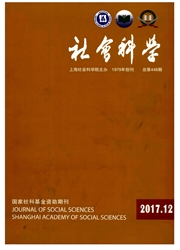

 中文摘要:
中文摘要:
在中央集权式前现代国家中,经济绩效的取得主要依靠政府的谋划与推动。中国经济长期居于世界前列的事实证明了我国历史上政府绩效较高的现实。按照科学管理原理,高绩效的取得离不开绩效评估的反馈控制作用。深挖史料,可以看出历史上“中国式政府绩效评估”类型是针对政府官员个人的个体评估,其评估主体来自于内部上级;不同时期的绩效评估方法都是以定量评估为主;同时,“评估类型”是流弊之源,“评估主体”、“结果应用”经验与遗弊共存,“评估成本”、“评估实施”全是教训等,对此可采取十种继承之道。
 英文摘要:
英文摘要:
In ancient China, the economy development depended heavily on the government policies. The fact that China had been in the lead in the economy in the world for a long time proved the ancient governments owned high performances. According to the scientific management principals, the performance could only be produced by evaluation measures, and the Chinese history also confirmed the rules. This paper probes into the Chinese history to find that in the Han, Tang, Song, Ming, and Qing Dynasties, the government performance evaluations takes the forms of internal evaluation, personal evaluation, seniority evaluation, but the form of organizational evaluation was neglected and caused a lot of adverse effects to be removed.
 同期刊论文项目
同期刊论文项目
 同项目期刊论文
同项目期刊论文
 期刊信息
期刊信息
